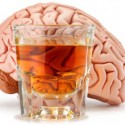Why do some heavy drinkers develop mouth and throat cancers while others do not?
A study by researchers in Europe has revealed why some heavy drinkers develop mouth and throat cancers while others do not and also why some people get drunk quickly.
The answer it seems is genetic – as two gene variants appear to offer “significant” protection against mouth and throat cancers.
The team of researchers led by the International Agency for Cancer Research in Lyon, France, looked at thousands of people of similar ages and lifestyles.
The data included information on almost 4,000 cases of cancer and more than 5,000 healthy people from Europe and Latin America.
The frequency of six variants of the alcohol dehydrogenase gene in the cancer cases were examined and compared with the frequency of the same six variants in people who had not developed cancer.
The research suggests that people who have the two gene variants are much better at breaking down alcohol into less harmful chemicals.
The clue is in alcohol dehydrogenase, the hyper-active enzyme that breaks down toxic alcohol more quickly, which means that the mouth and throat are exposed to the damaging effects of alcohol for a shorter period, with a lower chance that cancer will be initiated.
Experts say reducing alcohol intake is the best way to prevent cancer and even those with the genetic variants who drink alcohol are still at higher risk of these cancers than non-drinkers.
Alcohol along with smoking, is a known risk factor for oesophageal cancer and most people diagnosed with mouth cancers drink more than the recommended alcohol limit.
Earlier research identified a group of genes called ADH as culprits in the development of these cancers, two variants in the group of ADH genes were found to be linked to a lower chance of getting cancer.
These genes are thought to enable the body to make chemicals which can break down alcohol more than 100 times faster than those who do not have them.
When the researchers looked at study participants who admitted drinking heavily, the potentially beneficial effect of having one of the variants was even more pronounced, and in line with the amount of alcohol consumed.
The researchers say this suggests that this process is key in protecting people from alcohol-linked throat and mouth cancer.
However experts warn that having the variant was not a licence to drink heavily and the best advice for reducing the risk of cancers of the mouth, pharynx, larynx and oesophagus is to stop smoking and drink less alcohol.
Alcohol is also linked to cancers of the breast, bowel and liver and the greater the reduction on the amount of alcohol consumed, the greater the risk reduction.
The results showed that both these genes protect against cancer, and are particularly powerful in combination and those who carry both genes were 55 per cent less likely to develop any of the cancers studied.
The researchers say they found no link between the genes and drinking habits and the genes do not have any effect on cancer risk among non-drinkers.
The research is published in Nature Genetics.
___________
source: news-medical.net

